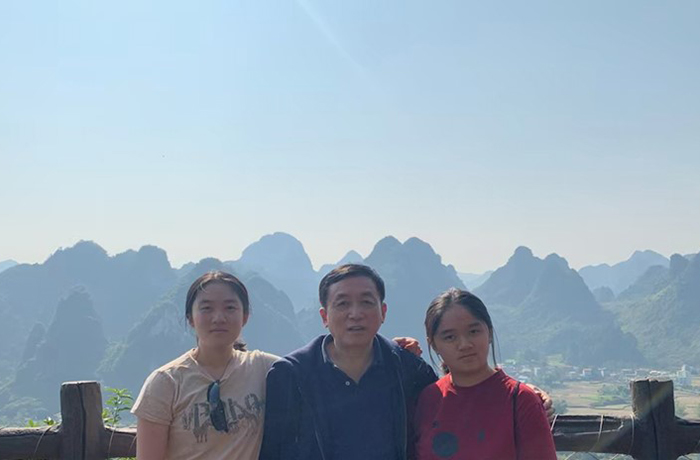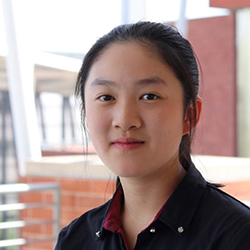
White Coat Profile: Kinsley Wang

The White Coat Ceremony marks the first time a medical student will don his or her white coat, the defining symbol of a physician. The coat bestows a great honor on each student, and with it comes a responsibility to uphold the trust of every patient they will encounter. The Class of 2028 will receive their white coats on July 19 during a ceremony that begins at 3:30 p.m. in the West Ballroom of the Phoenix Convention Center downtown.
Meet Kinsley Wang
Kinsley Wang is from the Los Angeles suburbs — specifically the San Gabriel Valley.
She attended college at California State University, Los Angeles, through an early entrance program. Graduating at just 15, Wang was the youngest college graduate in program history.

Her general interest in medicine began while she was conducting cancer research. As she helped invent and design clinical trials for cancer drugs, she saw how they provided patients hope and extra time with their families. She hopes to continue having that impact on people’s lives as a doctor.
For Wang, she credits her family as her biggest supporters. They are first generation immigrants, so seeing their struggles growing up inspired her to aim for the highest.
Path toward Medicine
What was the spark that led you to become a physician?
I witnessed a family member suffer and recover from heart attack. The doctor — confident, yet compassionate — helped him to make full recovery. The impact of that doctor on my uncle and our family, providing hope and guidance, was really inspiring
Did you do any volunteering in health fields prior to medical school?
Volunteering for Huntington Hospital, I formed personal connections with patients, deepening my commitment to compassionate patient care.
I also volunteered at Dignity Health – California Hospital Medical Center, working with underserved patients in the downtown Los Angeles area. There, I witnessed the challenges of patients who face language barriers, financial barriers, etc. Those experiences have shaped the kind of doctor I want to be.
The College of Medicine – Phoenix
Why did you choose the College of Medicine – Phoenix?
The school culture I experienced during interview day. The medical students were close knit with each other and spoke about support at the college.
I also liked the curriculum, particularly the early exposure to patient care and focus on research.
I knew the College of Medicine – Phoenix would provide me with opportunities and resources to become excellent doctor.
What excites you most about beginning medical school?
Getting to learn more about the science and patient care sides of medicine, as well as getting involved in more research. And I am excited to meet the faculty and students — to learn from their experiences and to share mine.
Significance of the White Coat
What does the white coat mean to you?
The white coat means responsibility to serve patients with compassion and professionalism. I am going to dedicate my life to serving future patients and my community.
About the College
Founded in 2007, the University of Arizona College of Medicine – Phoenix inspires and trains exemplary physicians, scientists and leaders to advance its core missions in education, research, clinical care and service to communities across Arizona. The college’s strength lies in our collaborations and partnerships with clinical affiliates, community organizations and industry sponsors. With our primary affiliate, Banner Health, we are recognized as the premier academic medical center in Phoenix. As an anchor institution of the Phoenix Bioscience Core, the college is home to signature research programs in neurosciences, cardiopulmonary diseases, immunology, informatics and metabolism. These focus areas uniquely position us to drive biomedical research and bolster economic development in the region.
As an urban institution with strong roots in rural and tribal health, the college has graduated more than 1,000 physicians and matriculates 130 students each year. Greater than 60% of matriculating students are from Arizona and many continue training at our GME sponsored residency programs, ultimately pursuing local academic and community-based opportunities. While our traditional four-year program continues to thrive, we will launch our recently approved accelerated three-year medical student curriculum with exclusive focus on primary care. This program is designed to further enhance workforce retention needs across Arizona.
The college has embarked on our strategic plan for 2025 to 2030. Learn more.